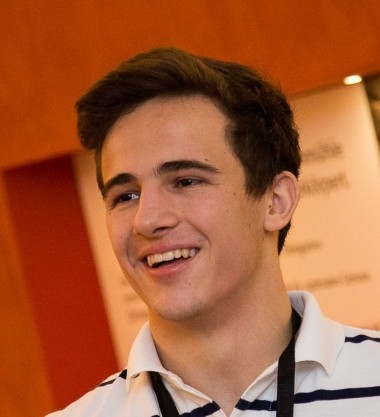A mobile application that can limit the possibility of getting infected with coronavirus was invented by a team led by Bulgarian Mihail Kovachev, who has been living in Austria. Inspired by similar Asian applications, young experts working in various fields decided to create an app that is compatible with European requirements. In an interview with Radio Bulgaria, Mihail Kovachev told us more about the new software:
 "Based on Bluetooth, GPS and other technologies, it shows the distance between people," Mr. Kovachev says in an interview with Radio Bulgaria. “For example, if we were standing 2 meters away from each other, smartphones would indicate this and keep track of how long we had been in contact. Based on this data, it is possible to calculate the probability of infection. If a person becomes ill and they were in close contact with other people then this information is sent to your phone. However, this happens completely anonymously and there is no way of knowing who the exact person is. All the data is stored locally on the phone and only when a person became sick,could the information be shared anonymously with other phones.”
"Based on Bluetooth, GPS and other technologies, it shows the distance between people," Mr. Kovachev says in an interview with Radio Bulgaria. “For example, if we were standing 2 meters away from each other, smartphones would indicate this and keep track of how long we had been in contact. Based on this data, it is possible to calculate the probability of infection. If a person becomes ill and they were in close contact with other people then this information is sent to your phone. However, this happens completely anonymously and there is no way of knowing who the exact person is. All the data is stored locally on the phone and only when a person became sick,could the information be shared anonymously with other phones.”
The application has already been approved by the Georgian authorities and is successfully working there. Based on symptoms detected, the user receives an automatic message from the government and he or she must confirm whether they were infected.
The creators of the application have also thought of those users who do not have a smartphone.
"We have already created keyholders and chip cards that can use the app without a smartphone," Mr. Kovachev says. "Initially they need to be scanned by a smartphone, but after that they start working on their own, collecting and storing information."
From a young age Mihail has been dreaming of helping people in need. “NOVID 20” is not the first mobile app created by the Bulgarian. When he was just 18years old he created a type of social network for universities. In order to realize it, he managed to persuade investors who provided the necessary financing.
"Through the social network, universities allow students to get to know each other. Everything is based on interests and information that people provide about themselves, so anyone can easily find a group of people with common interests to communicate with."
Mihail Kovachev now hopes that the new product of his team will be approved by the Bulgarian government and complement the application already created by another team and recently announced by the National Headquarters.
Mihail's plans for the upcoming Easter are work-related, but he will surely spend time with his family. He wished Bulgarians in the country and around the world to stay healthy and strong during this difficult period. Through Radio Bulgaria, Mr. Kovachev also expressed his gratitude to Bulgaria and its citizens for the way they have been managing with the crisis situation so far.
English: Alexander Markov
20 nominees from 11 countries – that is the number of contenders for the “Bulgarian Woman of the Year 2024”, named in honour of Saint Zlata of Meglen . The award has been presented every year since 2009 by the Executive Agency for Bulgarians Abroad..
An initiative committee led by the historian Georgi Markov, has proposed that a monument to Khan Asparuh, the founder of the Bulgarian state, be erected on the site of the former Soviet Army Monument in Sofia, in order to serve as a unifying symbol for..
The Bulgarian dance group “Dilmana” based in Copenhagen will celebrate 15 years since its establishment with a celebration on October 18, the formation informed on its Facebook page. Dance group Dilmanа from Copenhagen to perform at the folklore..
A celebration of children’s love of books and imagination will take place on 25 October in Los Angeles, organised by the Bulgarian School “St. St. Cyril..
The cool autumn evenings give us a reason to immerse ourselves in the cosy atmosphere of restaurants in Sofia and try new flavours..
At 04:00 Bulgarian time on October 26, 2025, we must turn our clocks back one hour. This means one more hour of sleep, but it..

+359 2 9336 661
